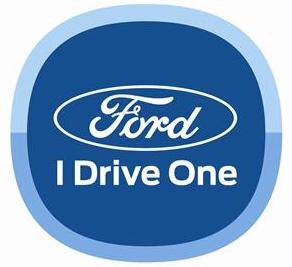

grbeck
Member-
Posts
4,308 -
Joined
-
Last visited
-
Days Won
17
grbeck last won the day on June 16 2020
grbeck had the most liked content!
Recent Profile Visitors
2,088 profile views
grbeck's Achievements
1.2k
Reputation
-
There are several aspects of quality. There is workmanship (build quality), short-term quality and long-term quality (i.e., reliability). Based our on our ownership experiences, Ford needs to make sure long-term quality is consistently good. Our 2005 Focus SE sedan was a beast - went 235,000 miles with only two major problems (alternator went at about 130,000 miles and idle air-control valve soon after that). The engine and transmission were fine when we traded it, and the air conditioning still blew ice-cold air. And my wife didn't baby that car. If anything, I had to repeatedly remind her to schedule regular maintenance for that car. The Focus was so good that, without hesitation, we traded it on an off-lease 2014 Escape SE that had only 4,000 miles on the odometer. At 95,000 miles the radio head unit failed completely, and the automatic transmission went out completely at 113,000 miles. (Our experience was not unique - the transmission in a friend's 2014 Escape failed at 75,000 miles!) It also took the dealer seven months to get a replacement transmission. That has soured my wife on Ford. I like the new Explorer - particularly the 2025 model - but I haven't been hearing consistently good things about those.
-

Ford to Rethink Where It Builds Its Vehicles.
grbeck replied to mackinaw's topic in Ford Motor Company Discussion Forum
As I understand it, the contract with the UAW specifically states that it will represent line workers at all Ford plants located within the U.S. Ford could try to remove that provision during future contract negotiations, but if we thought that this strike was nasty... -

Ford to Rethink Where It Builds Its Vehicles.
grbeck replied to mackinaw's topic in Ford Motor Company Discussion Forum
The issue isn't wanting a raise. With the inflation we've experienced, I certainly don't begrudge members this opportunity to "catch up" in real income. The issue is union leadership that seems to take delight in hurting the company that provides jobs to its members, and demonizing the Ford executive team. William Clay Ford, Jr., is hardly the Harry Bennett of the 21st century. And the idea that the UAW is going unionize the transplant operations with these tactics is a pipe dream. -

Ford to Rethink Where It Builds Its Vehicles.
grbeck replied to mackinaw's topic in Ford Motor Company Discussion Forum
Ford's strategy has been to open local factories and build vehicles tailored to the conditions of those countries. Visit London, Paris or Tokyo...very few people will want to drive an F-150 or even an Explorer in those cities - let alone pay for the gas to keep it running. -
The new grille doesn't work. It's not terrible, but the overall shape doesn't mesh with the other design elements. The interior improvements are most welcome...I sat in a 2024 Explorer at the Harrisburg Auto Show this weekend. My wife wasn't wild about the dashboard, and another woman who was looking at it told her husband, "This screen looks dated." It was interesting how many people immediately checked out the center screen in the vehicles. That was their first priority when looking at the interior.
-
The federal agency not only jacked up the front of the Chevrolet Impala (a much heavier car), but also turned on its headlights (to ensure a spark) and filled the Pinto's tank to capacity. That is because the first tests did not result in an explosion! The Pinto met applicable government standards for fuel-tank integrity (also note that the standards were in flux when Ford was developing the car). The Mother Jones article wildly overstated the number of Pinto deaths due to fire. The car's overall safety record, when compared to competitive small cars of that era, was better than average. If we limit it to fire-related accidents, the Pinto is only a little worse than average (and it wasn't the worst - the AMC Gremlin was the worst).
-

New Jersey to Require 35% Electric Vehicle Sales by 2026
grbeck replied to silvrsvt's topic in E.V. Central
I can see this being quickly repealed when it starts affecting people. Like many policies driven by virtue signaling, support melts when voters have to live up to their professed ideals (Exhibit A in that regard is the reaction of self-proclaimed "Sanctuary Cities" to actually having to deal with an influx of illegal immigrants). If new-vehicle buyers - who tend to be more affluent, and thus more likely to vote - suddenly find themselves paying considerably more for a vehicle whose supply has been limited by this mandate, they will loudly let their state representative know how they feel about it. -
Means nothing. A person can buy ten shares of Toyota stock, and still "raise concerns" at shareholder meetings. That doesn't mean that the majority of shareholders agree, or that the "concerns" are valid. Take away government incentives that encourage the purchase of Teslas, and see what choices consumers make.
-
Apparently, "irresponsible" as applied to the new-vehicle market really means "one that real-life paying customers prefer," given the sales figures for Toyota's hybrids.
-

New Jersey to Require 35% Electric Vehicle Sales by 2026
grbeck replied to silvrsvt's topic in E.V. Central
This is a state that doesn't let citizens pump their own gas - a task that millions of people in neighboring Pennsylvania manage to handle each year without setting themselves on fire or blowing up the filling station. -
Of course travel speeds are increasing on highways. Vehicles are increasingly quieter and less prone to rattle or vibrate. I learned to drive on a 1973 AMC Gremlin. In that car 55 mph felt like 80 mph. Our current vehicles can cruise effortlessly all day at 85 mph. That's perfectly safe on an uncrowded limited access highway, so of course people will drive at those speeds.
-
The federal government studied this issue in the early 1990s...it found that changes in the posted limit had little effect on travel speeds. The IIHS claim that the repeal of the 1995 limit resulted in higher speeds is therefore not necessarily conclusive. Also note that, under the definition used by the federal government, a "speed-related fatality" encompasses accidents involving a drunk driver who was exceeding the limit; a person fleeing the police during an official pursuit; and accidents during inclement weather. If a person is driving at 50 mph during an ice storm, and has a fatal accident, that is a "speed related fatality." The term isn't limited to someone driving 80 mph in the 70 mph zone. In other words, take everything posted by the IIHS with a boulder-sized grain of salt. Finally, we repealed the national 65 mph speed limit in late 1995, which coincided with a long economic boom. When the economy is doing well, discretionary driving increases, and that brings about more accidents and fatalities. People are more likely to be killed driving home at 1 a.m. from a party or a bar, as opposed to driving to and from work during the day.



